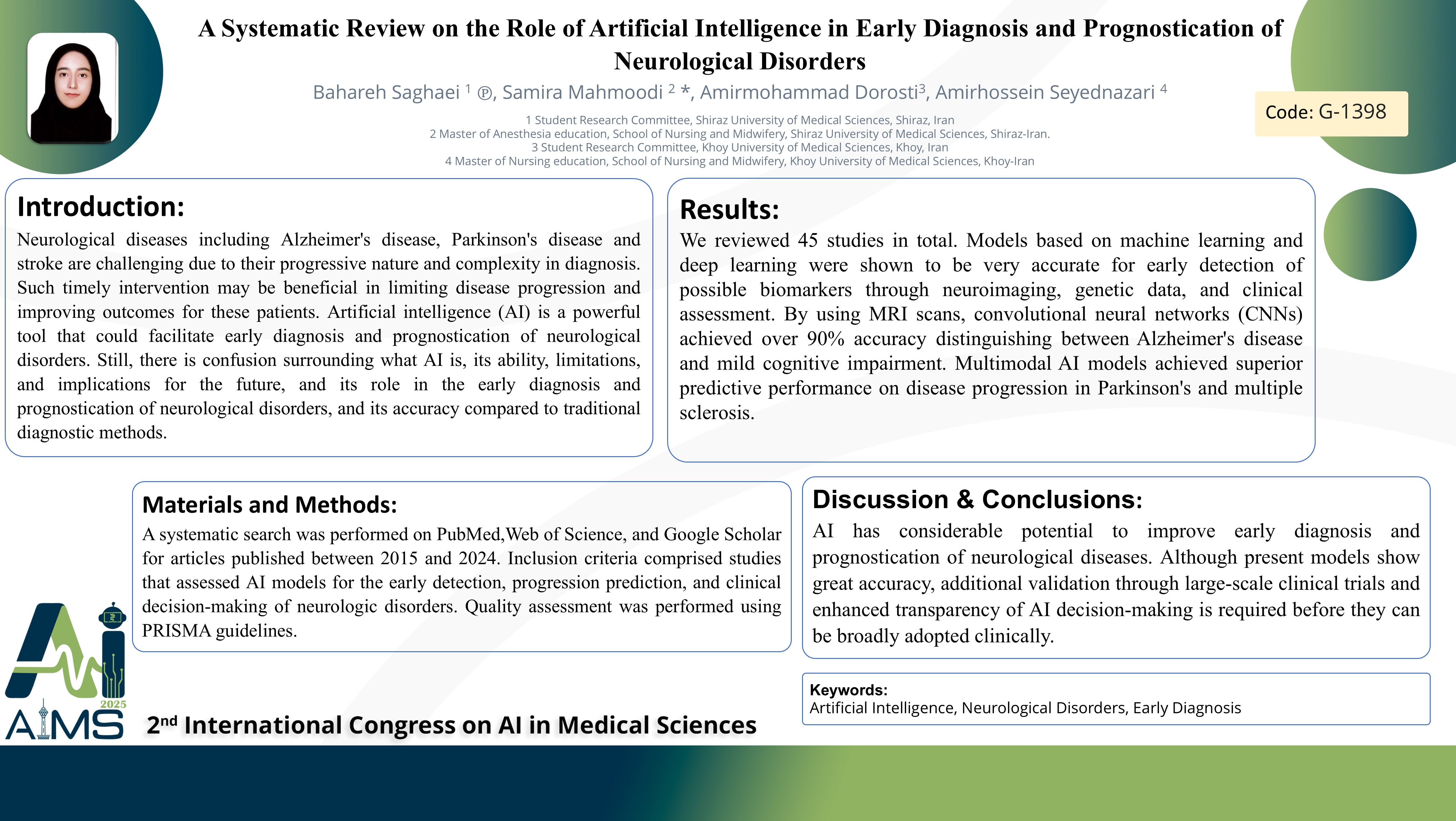مروری سیستماتیک بر نقش هوش مصنوعی در تشخیص زودهنگام و پیشبینی اختلالات عصبی
کد: G-1398
نویسندگان: Bahareh ℗, Samira *, Amirmohammad, Amirhossein
زمان بندی: زمان بندی نشده!
برچسب: سیستم های تصمیم یار بالینی
دانلود: دانلود پوستر
خلاصه مقاله:
خلاصه مقاله
Introduction: Neurological diseases including Alzheimer's disease, Parkinson's disease and stroke are challenging due to their progressive nature and complexity in diagnosis. Such timely intervention may be beneficial in limiting disease progression and improving outcomes for these patients. Artificial intelligence (AI) is a powerful tool that could facilitate early diagnosis and prognostication of neurological disorders. Still, there is confusion surrounding what AI is, its ability, limitations, and implications for the future, and its role in the early diagnosis and prognostication of neurological disorders, and its accuracy compared to traditional diagnostic methods. Methods: A systematic search was performed on PubMed, Scopus, Web of Science, and Google Scholar for articles published between 2015 and 2024. Inclusion criteria comprised studies that assessed AI models for the early detection, progression prediction, and clinical decision-making of neurologic disorders. Quality assessment was performed using PRISMA guidelines. Results: We reviewed 45 studies in total. Models based on machine learning and deep learning were shown to be very accurate for early detection of possible biomarkers through neuroimaging, genetic data, and clinical assessment. By using MRI scans, convolutional neural networks (CNNs) achieved over 90% accuracy distinguishing between Alzheimer's disease and mild cognitive impairment. Multimodal AI models achieved superior predictive performance on disease progression in Parkinson's and multiple sclerosis. Conclusion: AI has considerable potential to improve early diagnosis and prognostication of neurological diseases. Although present models show great accuracy, additional validation through large-scale clinical trials and enhanced transparency of AI decision-making is required before they can be broadly adopted clinically.
کلمات کلیدی
Artificial Intelligence, Neurological Disorders, Early Diagnosis
